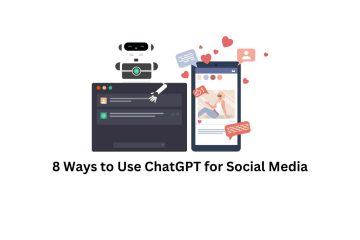I. Introduction
Digital marketing has become an essential component of businesses marketing strategies, and with the advent of artificial intelligence (AI), it has become even more sophisticated. AI has revolutionized the way businesses approach digital marketing by enabling them to analyze large amounts of data and make data-driven decisions. In this blog post, we will explore the latest trends and best practices for Digital Marketing with Artificial Intelligence, empowering businesses to incorporate AI into their marketing strategies and enhance their performance.
II. AI in Digital Marketing: Latest Trends
Personalized User Experience
Personalization has become a buzzword in digital marketing, and AI has made it easier for businesses to personalize their user experiences. AI algorithms can analyze user data to provide personalized product recommendations, email marketing campaigns, and website experiences.
Voice and Visual Search
Voice search and visual search have become popular among consumers, and AI is powering these technologies. AI algorithms can recognize speech patterns and visual content to provide users with accurate search results.
Chatbots and Customer Service Automation
Chatbots have become ubiquitous in the customer service industry, and AI is making them even more effective. AI-powered chatbots can understand natural language and provide personalized responses to customers.
Predictive Analytics and Forecasting
AI-powered predictive analytics and forecasting enable businesses to make data-driven decisions. These technologies can analyze large amounts of data to predict future trends and customer behaviour.
Automated Ad Campaigns
AI-powered ad campaigns can automate the process of creating and optimizing ad campaigns. These campaigns can be optimized based on data analysis and can provide businesses with a better return on investment (ROI).
Influencer Marketing
Influencer marketing has become an essential component of digital marketing, and AI is making it more effective. AI algorithms can analyze influencer data to find the right influencer for a particular campaign.
Read Also: Benefits of AI in Social Media
III. Best Practices for Using AI in Digital Marketing
Define Clear Goals and KPIs
Businesses must define clear goals and key performance indicators (KPIs) when using AI in digital marketing. This will enable them to measure the effectiveness of their campaigns and make data-driven decisions.
Use Quality Data for AI Algorithms
The quality of data used in AI algorithms can have a significant impact on their effectiveness. Businesses must ensure that their data is accurate, relevant, and up-to-date.
Maintain a Human Touch in Customer Service Interactions
While AI-powered chatbots can provide personalized responses to customers, businesses must maintain a human touch in their customer service interactions. This will help build customer trust and loyalty.
Ensure Transparency in Data Usage
Businesses must ensure transparency in how they use customer data. This will help build trust with customers and avoid any potential ethical concerns.
Continuously Analyze and Optimize AI Performance
AI algorithms must be continuously analyzed and optimized to ensure that they are effective. Businesses must monitor their campaigns and make changes based on data analysis.
Invest in Employee Training and Development
Businesses must invest in employee training and development to ensure they have the skills to effectively incorporate AI into their marketing strategies.
Read Also: The potential of AI in Digital Marketing: The Future of SEO, Affiliate Marketing, and Search Engines
IV. Case Studies: Examples of AI in Digital Marketing
AI has become an essential tool for businesses to drive personalized experiences and gain insights into customer behaviour. In this section, we will discuss case studies that showcase how AI is being used in digital marketing.
Amazon and Personalized Recommendations
Amazon, one of the world’s largest e-commerce retailers, is renowned for its personalized recommendations feature. This feature is powered by AI algorithms that analyze user data, including purchase history, search history, and browsing behaviour, to provide personalized product recommendations. The recommendations are displayed on the user’s homepage, in their email inbox, and even during the checkout process.
By using AI-powered personalized recommendations, Amazon has increased customer engagement and sales. According to a report by McKinsey, product recommendations account for 35% of Amazon’s revenue.
Spotify and Music Discovery
Spotify, the world’s leading music streaming platform, uses AI algorithms to provide personalized music recommendations to its users. The music discovery feature analyzes user data, including listening history, search history, and playlists, to suggest songs and artists that the user may like.
This feature has helped Spotify increase user engagement and retention. According to a report by Business Insider, 40% of Spotify’s active users discover new music through the platform’s personalized recommendations feature.
Sephora and Virtual Makeup Try-On
Sephora, a cosmetics retailer, has incorporated AI into its digital marketing strategy by using virtual makeup try-on technology. The technology uses AI algorithms to analyze user data, including skin tone and facial features, to provide personalized makeup recommendations.
The virtual try-on feature allows customers to try on different makeup products virtually, providing a realistic representation of how the product will look on them. This feature has helped Sephora increase customer engagement and sales. According to a report by Forbes, Sephora’s virtual try-on quality has increased customer conversion rates by 11%.
These case studies showcase how AI is being used in digital marketing to provide personalized experiences and increase customer engagement and sales. By incorporating AI into their marketing strategies, businesses can gain valuable insights into customer behaviour and provide more personalized experiences to their customers.
Read Also: Top 10 AI Tools For Digital Marketing in 2023
V. The Future of AI in Digital Marketing
As AI technology continues to evolve, the future of AI in digital marketing looks promising. In this section, we will discuss the future of AI in digital marketing and how it will enhance customer experiences.
Enhanced Personalization
AI-powered personalization has already become an essential tool for businesses to provide personalized experiences to their customers. In the future, AI-powered personalization will become even more sophisticated, enabling businesses to provide even more personalized experiences to their customers.
For example, AI algorithms may be able to predict customers’ preferences based on their previous interactions with the brand and provide recommendations that are more accurate and relevant to their needs.
Increased Use of Natural Language Processing
Natural language processing (NLP) is a type of AI technology that enables machines to understand and respond to natural language queries from customers. As more customers interact with businesses through voice search and digital assistants, the use of NLP in digital marketing will become more prevalent.
Businesses can use NLP to analyze customer inquiries and provide personalized responses that meet their needs. For example, a chatbot that uses NLP can understand customer inquiries and provide relevant information or recommendations based on the customer’s intent.
Advancements in Predictive Analytics
Predictive analytics is a type of AI technology that enables businesses to make predictions about customer behaviour and future trends based on data analysis. In the future, advancements in predictive analytics will enable businesses to make even more accurate predictions.
For example, businesses can use predictive analytics to anticipate customer needs and provide personalized recommendations. This can help businesses increase customer loyalty and retention.
Expansion of AI-Powered Chatbots
AI-powered chatbots have become increasingly prevalent in digital marketing, and their capabilities will expand in the future. Businesses can use chatbots to provide personalized responses to customer inquiries, and even offer personalized recommendations based on customer preferences.
As chatbots become more advanced, they will be able to provide even more personalized responses to customers and handle more complex inquiries. This can help businesses improve customer experiences and increase customer engagement.
Ethical Considerations and Data Privacy
As AI becomes more prevalent in digital marketing, businesses must consider ethical considerations and data privacy. It is important for businesses to use customer data ethically and transparently.
VI. Conclusion
AI has revolutionized digital marketing, enabling businesses to provide personalized experiences to their customers and make data-driven decisions. By following the best practices outlined in this post, businesses can effectively incorporate AI into their marketing strategies and stay ahead of the competition. As AI continues to evolve, businesses must stay up-to-date with the latest trends and technologies to remain competitive in the digital marketing landscape.

Hello, I’m Ali Raza, the brain behind Digital Realm Trends.
Hailing from the vibrant world of digital marketing, I’ve honed my skills over years. Based on my experience, I’m here to unravel the complexities of digital marketing, analytics and paid marketing, crafted for individuals like you. Join me in uncovering the power of digital marketing tools and strategies, fueled by experimentation and insights.




